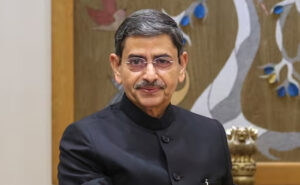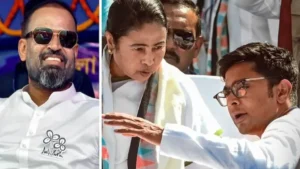Vice President Jagdeep Dhankhar’s recent criticism of the Supreme Court’s directive to President Droupadi Murmu — instructing her to give assent to bills within three months — has triggered a sharp rebuttal from senior advocate and Rajya Sabha MP Kapil Sibal.
Drawing a parallel to the historic 1975 Supreme Court verdict that unseated then Prime Minister Indira Gandhi, Sibal said, “People may recall that when the court ruled against Indira Gandhi’s election, it was a single judge — Justice Krishna Iyer — who delivered the verdict, and yet it was accepted without question. That was acceptable to Dhankhar ji. But now, when a two-judge bench delivers a ruling that doesn’t align with the government’s position, it is being challenged?”
“Judiciary’s Nuclear Missile”: Dhankhar on Article 142
Objecting to the Supreme Court’s recent directions, Dhankhar raised concerns over what he called judicial overreach. He took particular aim at Article 142, referring to it as “a nuclear missile against democratic forces, available to the judiciary 24×7.”
“We cannot have a scenario where the President of India is directed in such a manner. The only constitutional provision for interpreting the Constitution lies under Article 145(3), which mandates a bench of at least five judges. But now, Article 142 is being used to step beyond judicial boundaries,” the Vice President said.
He was referring to a recent case in which the Supreme Court criticized the Tamil Nadu Governor for delays in granting assent to ten bills. The court had said that if the President or Governor does not act within a specified time, the legislation would automatically take effect. Dhankhar questioned, “Are we now allowing judges to legislate, execute, and override Parliament — all without accountability?”
Sibal’s Counterattack
Responding firmly, Sibal said, “I was deeply disappointed by Jagdeep Dhankhar’s remarks. Among all institutions in India, the judiciary still enjoys the highest public trust. The President is a constitutional figurehead and acts solely on the advice of the Cabinet. There are no discretionary powers vested personally in the President.”
He added, “Dhankhar ji should know this. He asks how the powers of the President are being curbed — but who’s curbing them? If a minister tries to raise pressing public issues with a Governor for two years, and is ignored, is that not more concerning?”







